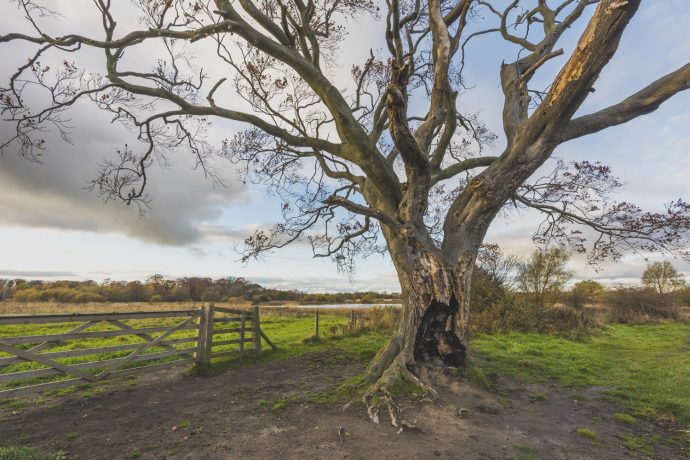In his book The First 100 Days (published by Beacon Hill Press of Kansas City), T. Scott Daniels tells a story about a young pastor fresh out of seminary taking his first pastorate in Georgia. Upon arriving at his new church, he sees a gnarled old tree by the entrance that is a bit of an eyesore and looks rather dangerous. The pastor, full of youthful vivacity and confidence, decides he will offer a gift to his new congregation, who—he assumes—haven’t had the resources or the wherewithal to cut this nasty tree down. So he fells the mighty timber in a showing of good faith to his new people.
What he didn’t realize before bringing out the chainsaw was that the congregation believed that tree to have been planted a couple of centuries ago by John Wesley on a missionary journey to Georgia.
That young pastor did not last long in his new ministry assignment.
As children’s pastors, directors, or leaders, we all see changes we want to make in our congregations, in our ministries, or even in our leadership teams. If you’re like me, you get into a situation and immediately begin identifying changes you could make and brainstorming new ideas to implement. You’re ready and raring to go. You’re fired up.
But what about the people who love the very things you seek to change?
If you’re like me, you get into a situation and immediately begin identifying changes you could make and brainstorming new ideas to implement. You’re ready and raring to go. You’re fired up.
In the podcast series Revisionist History, Malcolm Gladwell uses a phrase that can offer some direction to those of us who want to make changes but are standing before people who value what is already there—generous orthodoxy.
Think of the word generous in this phrase like you would when referring to someone’s openness about something: “Well, that’s a generous definition.” Think of orthodoxy as it relates to tradition. If you are orthodox, you are committed to something longstanding and deeply rooted.
If you’re looking to make some changes and are hoping for some generosity (openness) from your people, you must first prove your own orthodoxy (commitment to tradition). The Georgia pastor who cut down the tree assumed the generosity of the people without establishing his own orthodoxy. He thought for sure they’d be open to the change he proposed with a chainsaw. However, he never established his orthodoxy. He didn’t ask around about the tree to learn its history first. He didn’t do anything to prove his respect for Wesleyan heritage. He never proved to his new congregation that he was one of them, that he belonged, and that he valued what they valued.
I’m not only talking to leaders in new assignments. Even if you’ve been in the same church for thirty years, I’d be willing to bet there are probably changes you’d love to make. There are probably sacred cows you’d like to see de-idolized. If you want to make changes in any context, you must first prove to the group to whom you are proposing the change that you value what they value and that you are a part of them. If all you want to do is come in with your chainsaw (which could get really messy with a sacred cow, if you’ll allow me to mix metaphors), your ideas will quickly be dismissed as an outsider’s, even if you’ve been around for a while.
If you want to make changes in any context, you must first prove to the group to whom you are proposing the change that you value what they value and that you are a part of them.
Instead, you must spend time in the orthodoxy (the tradition) of that group. You must learn why they hold sacred what they do. You must help them understand that you value them and that your goal is not to discard what they value. Once these truths have been established, you will begin to develop the social currency needed to propose the changes you would like to see. These changes will then be accepted as coming from an insider, from one of their own.
A note of caution: Don’t simply pretend to appreciate what they value just to gain the upper hand. That’s manipulation. Instead, really open yourself up to seeing things from a new point of view. You must be generous first if you hope for generosity from others. After you have engaged in the necessary work of building relationships, if you still feel strongly about the change you would like to see, then propose it. (It’s also likely that, after this time has been spent building the relationships, you will know your people well enough to understand how to frame your proposal in a way they will receive well.)
Healthy change takes time. It requires relationships, and it requires perspective. To really seek your church’s generosity, you always must first establish that you are indeed part of their orthodoxy.





1 Comments
Becky Bond
So true in many types of work, family, friend settings. Good thoughts.